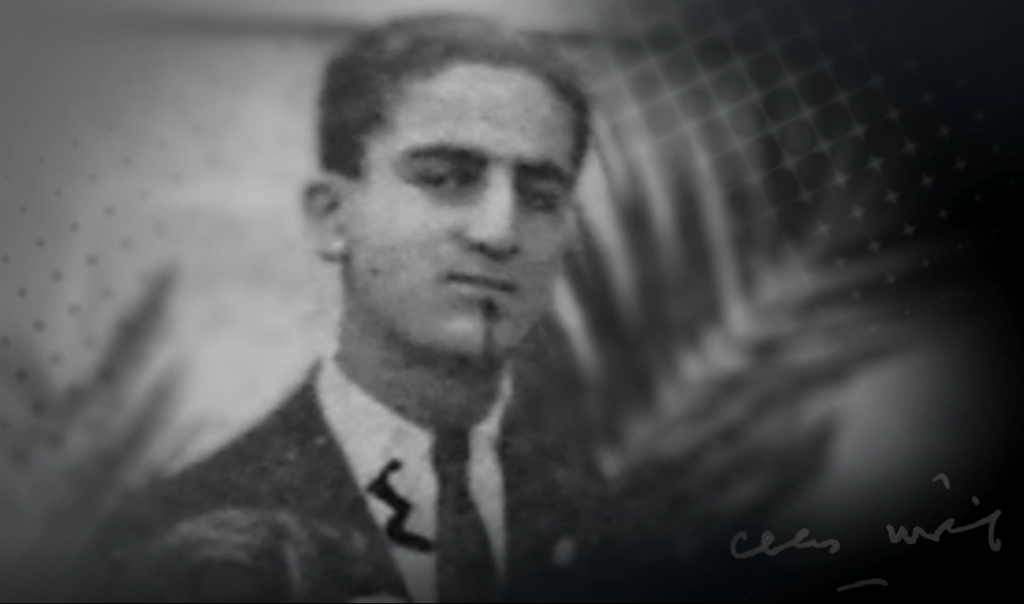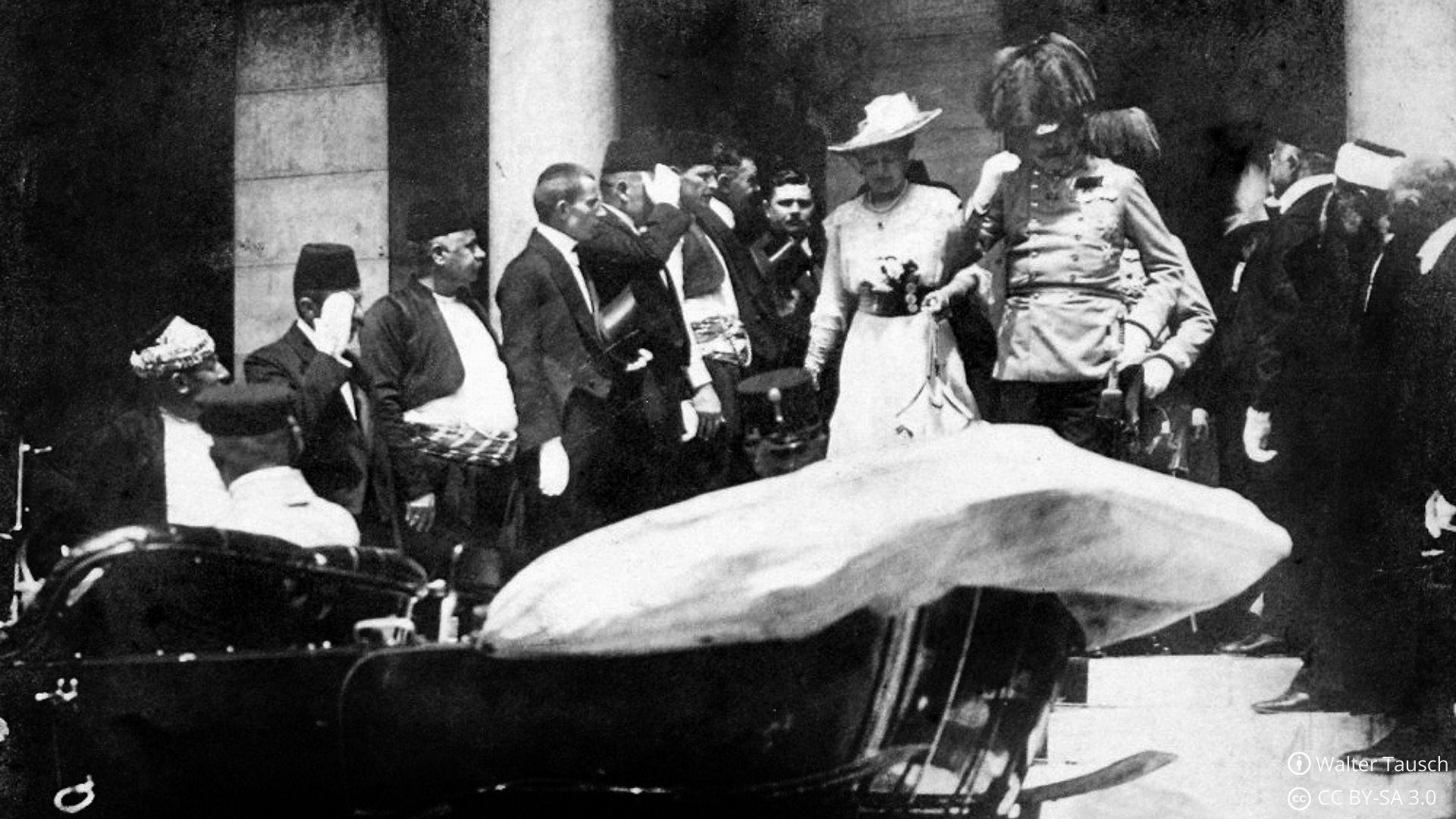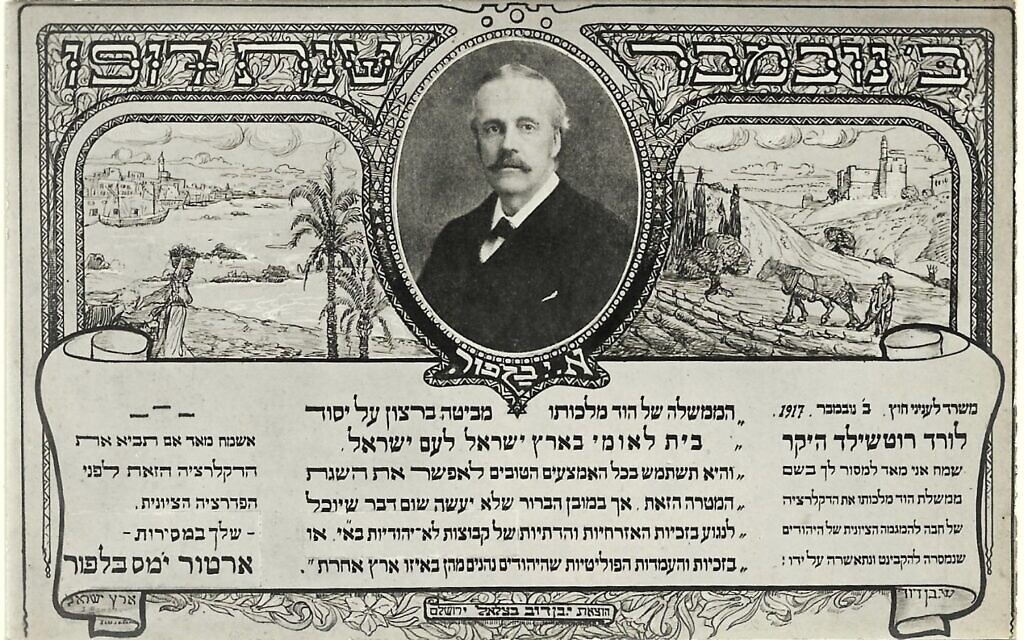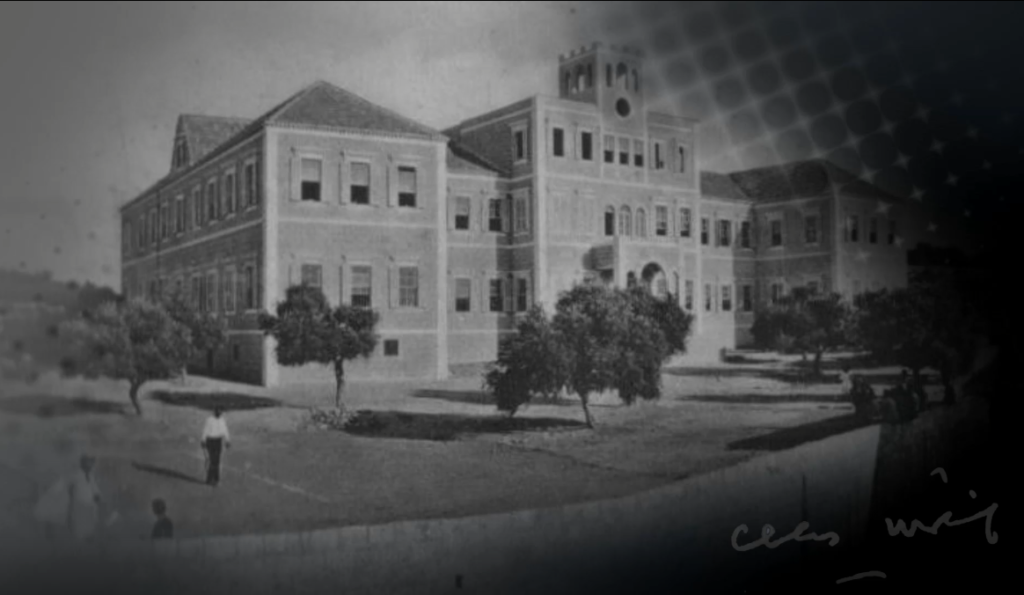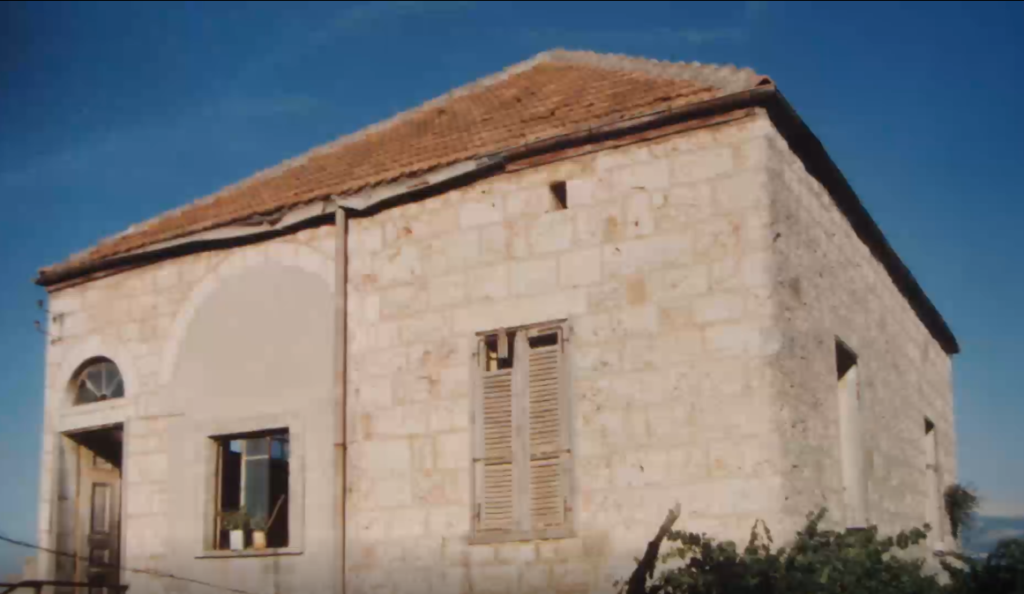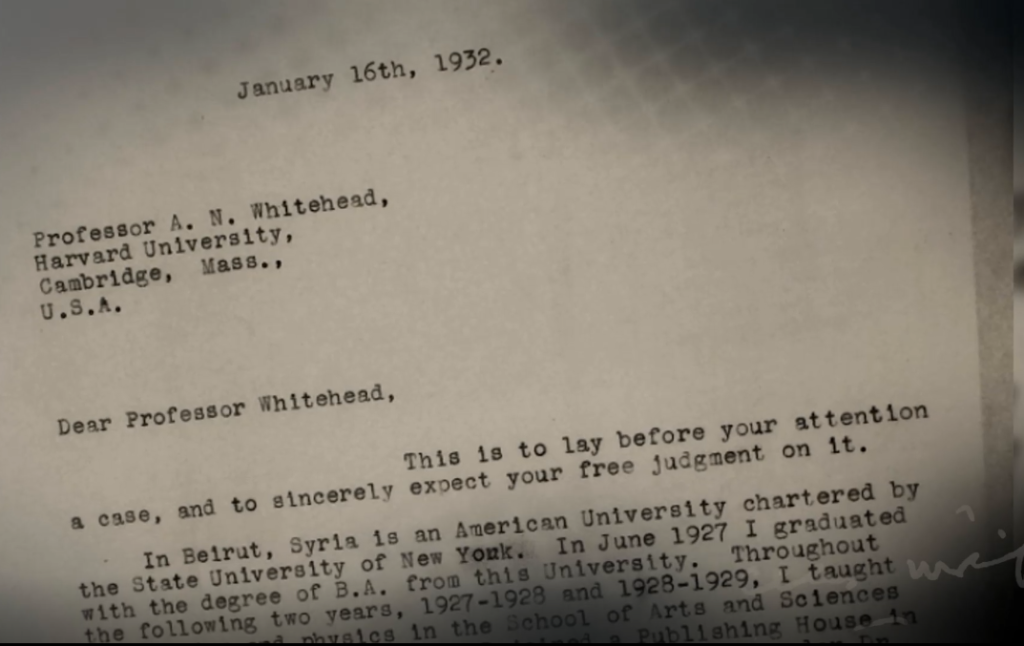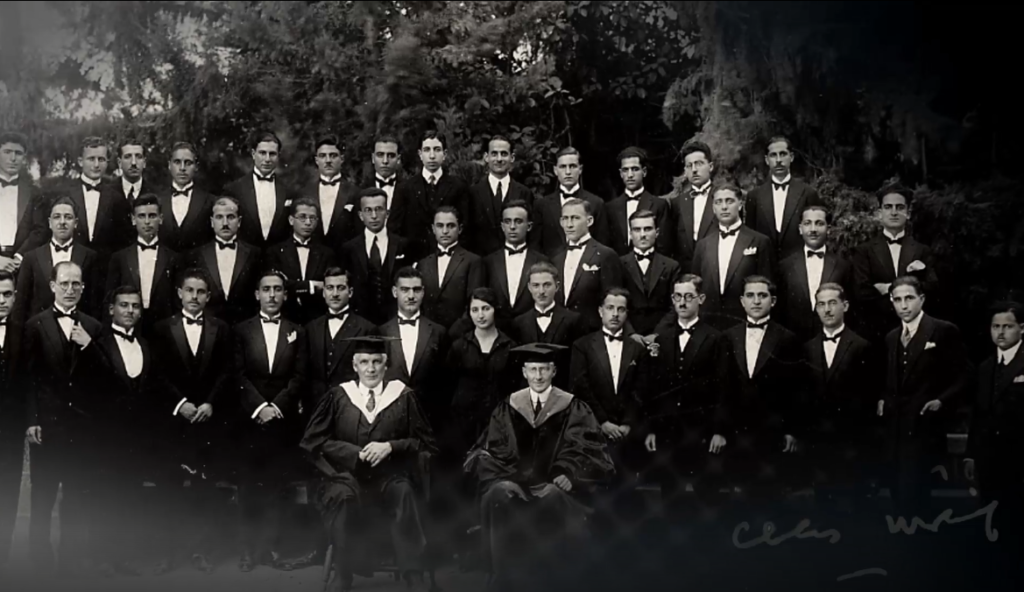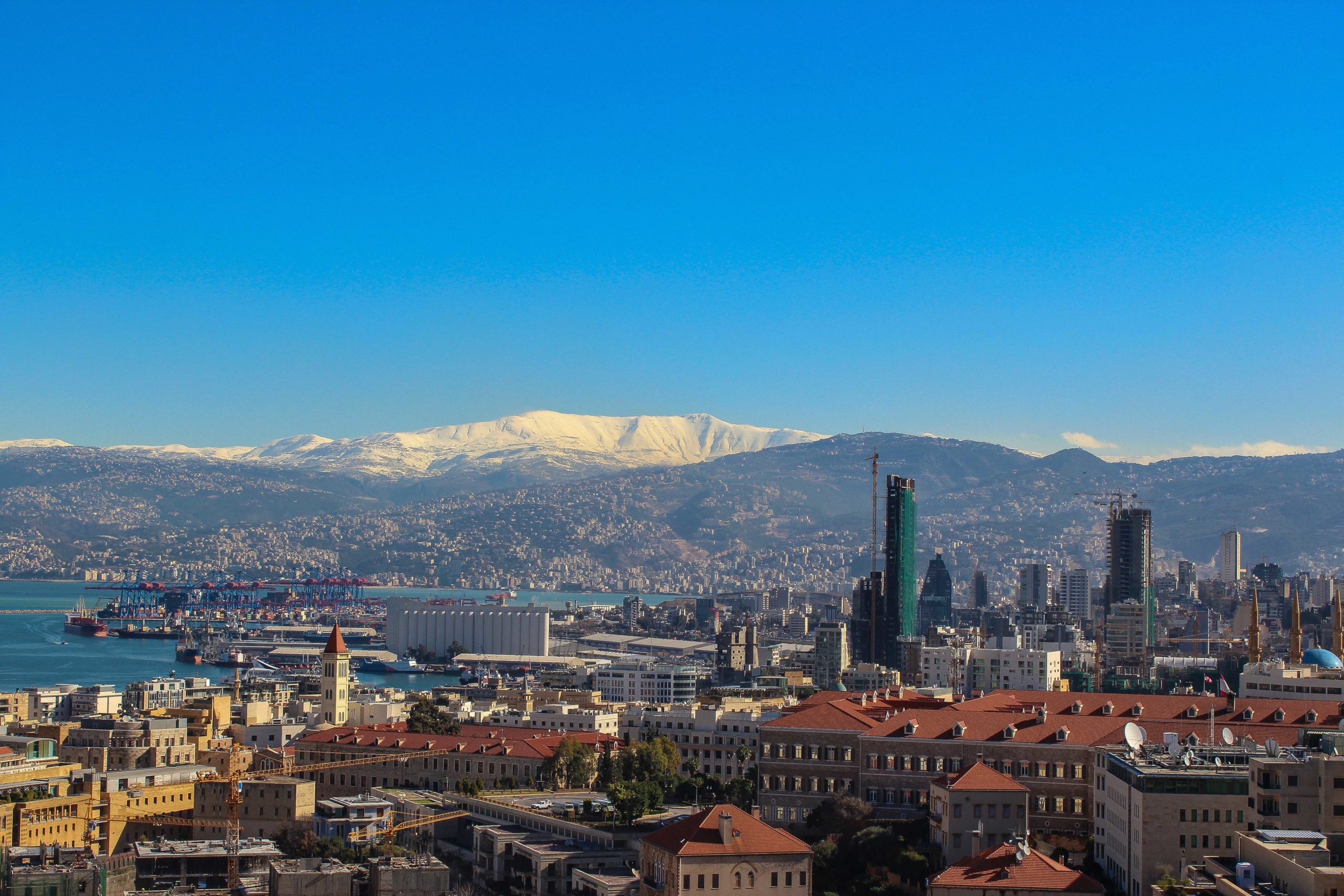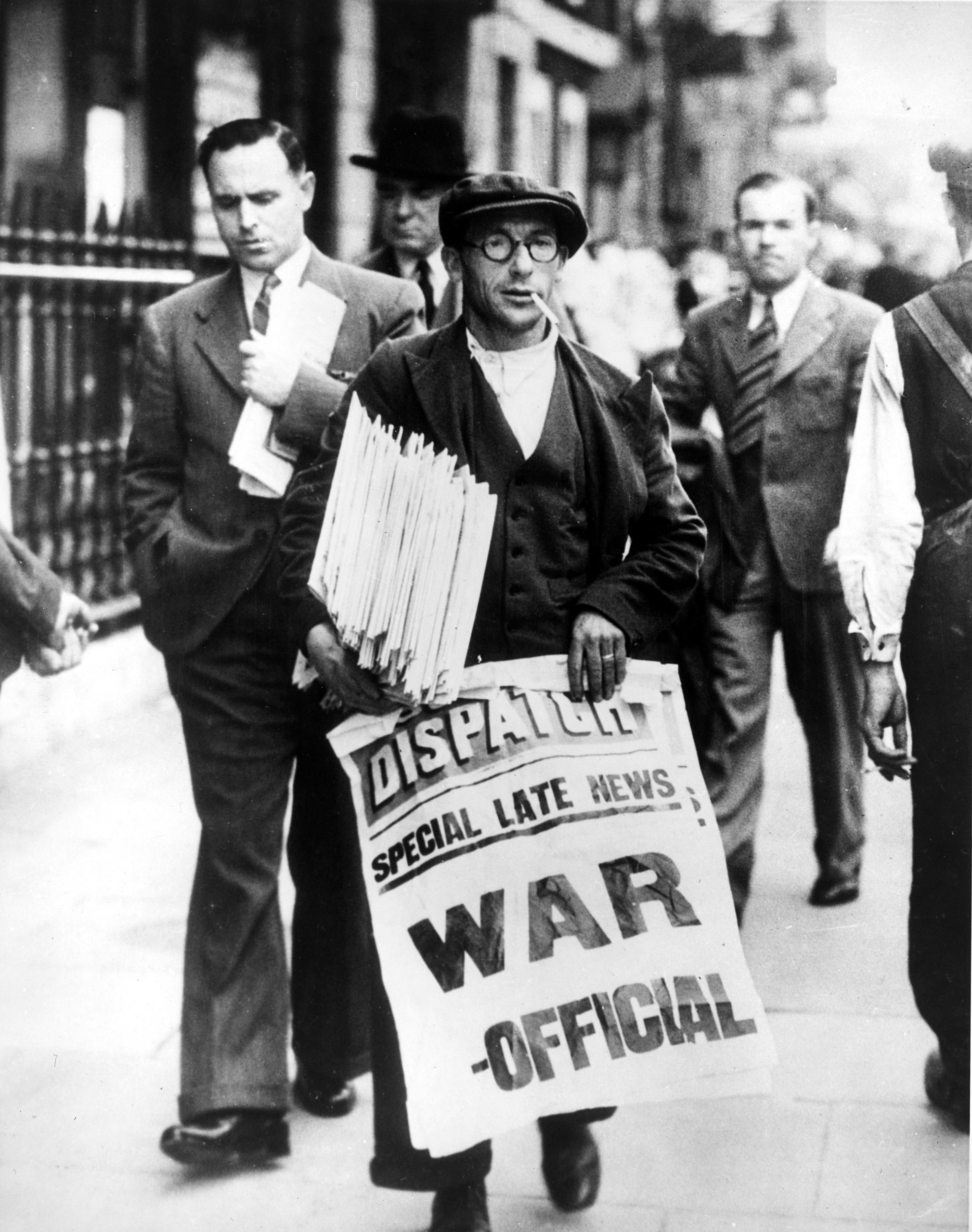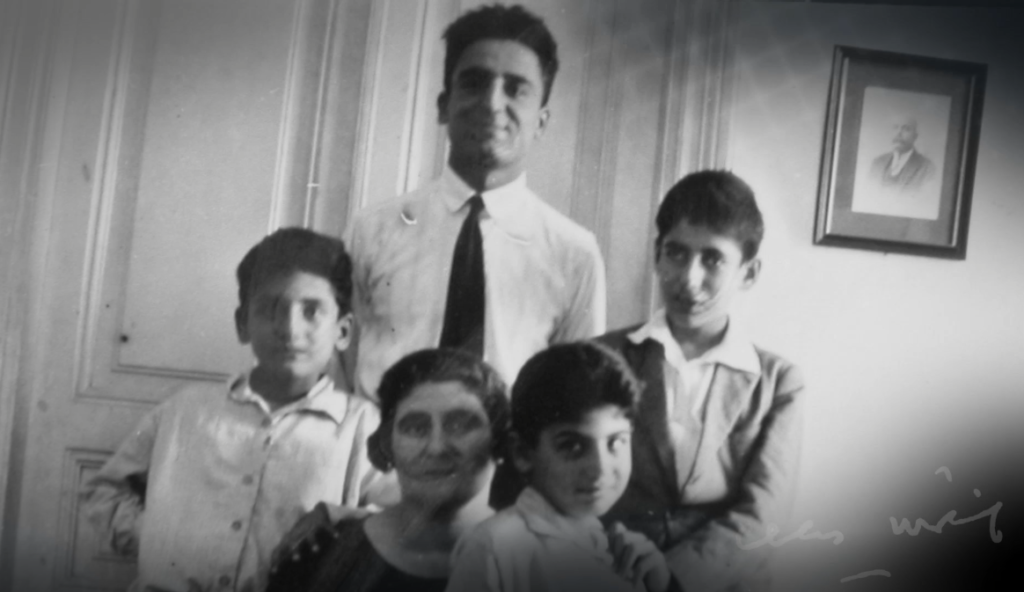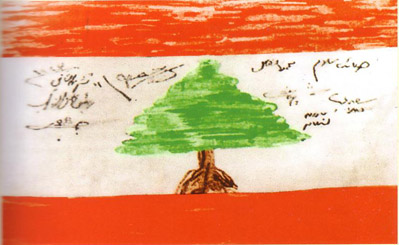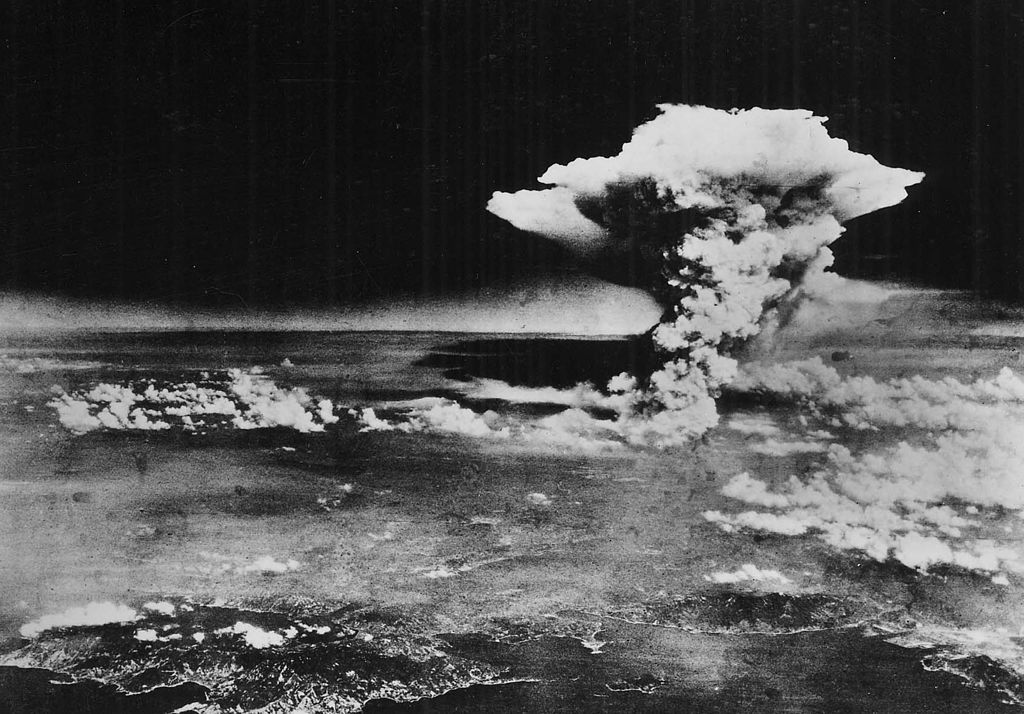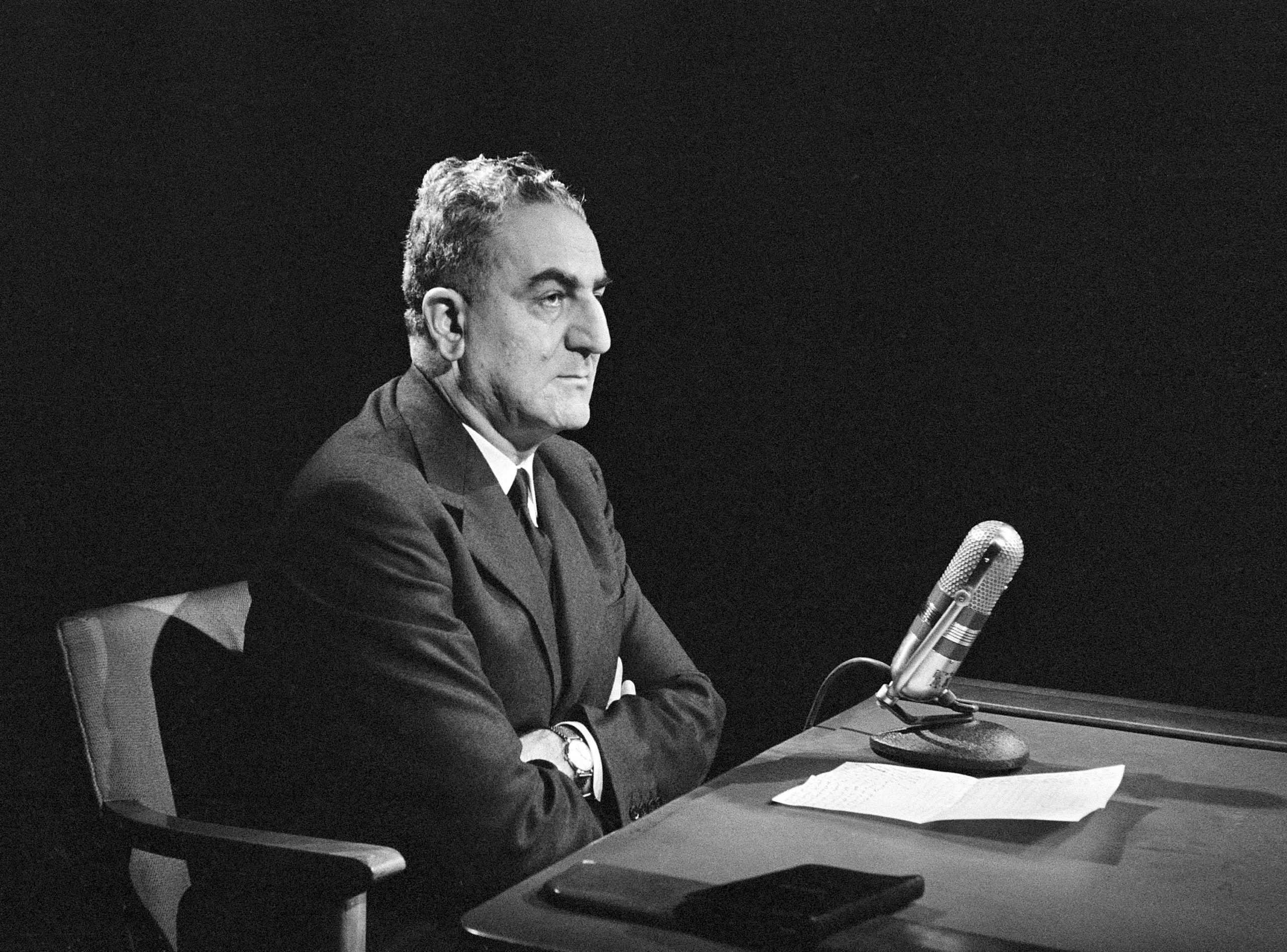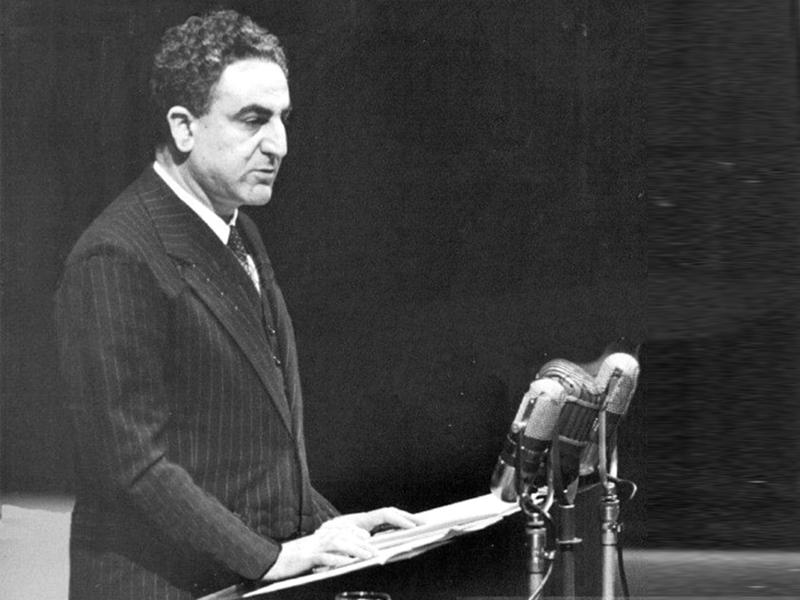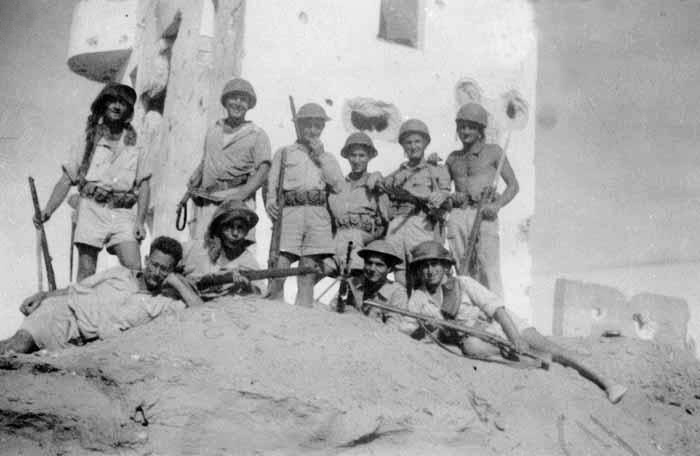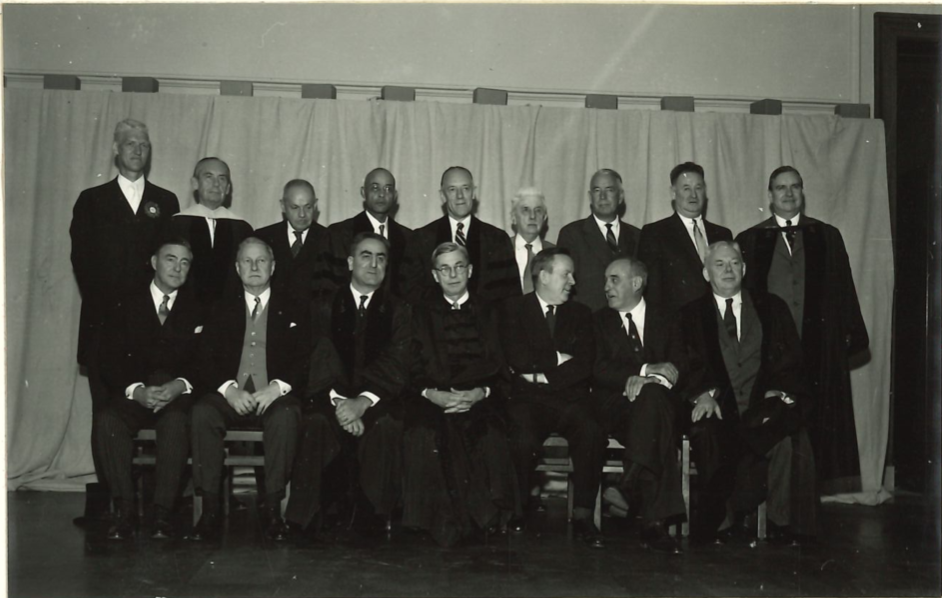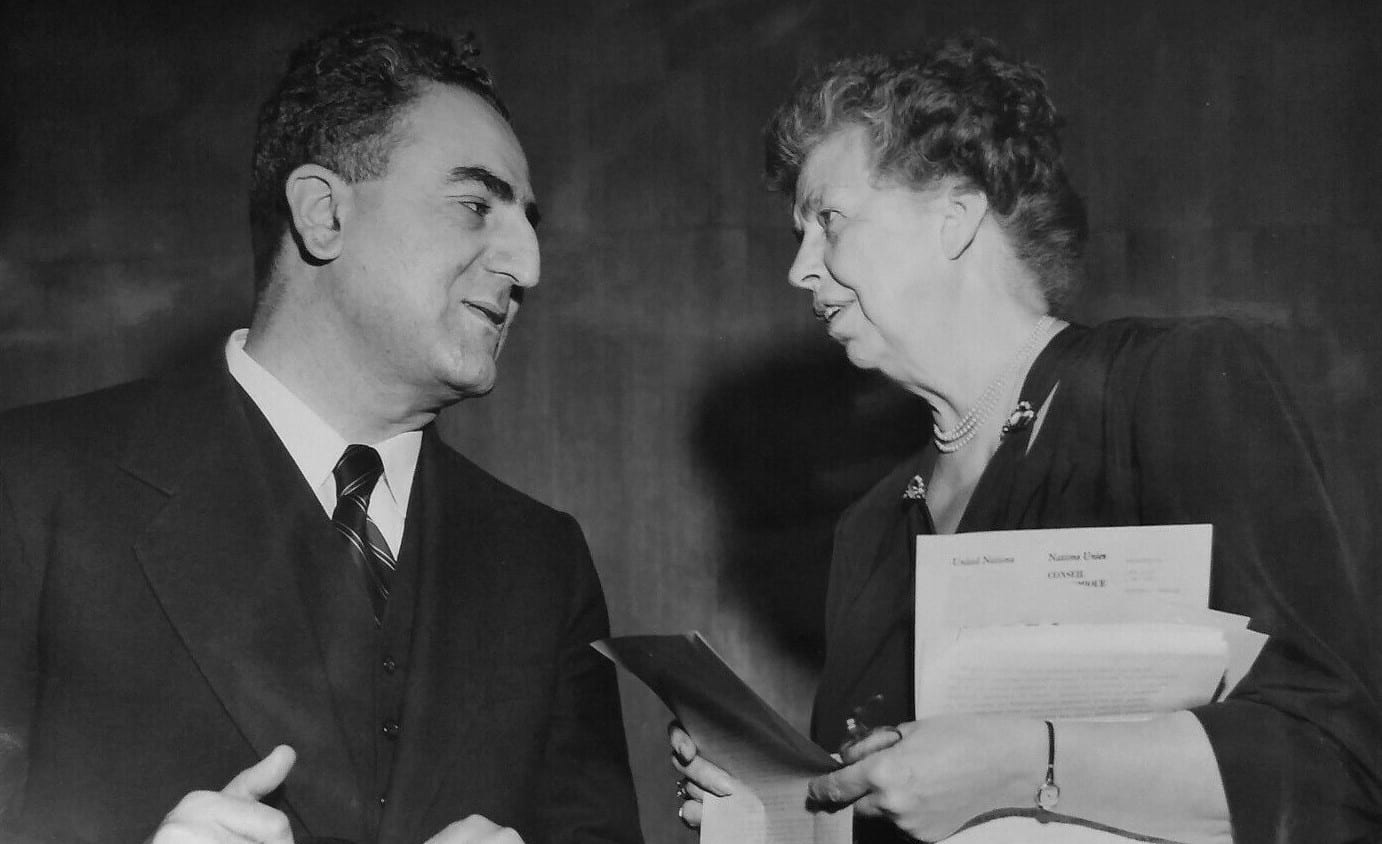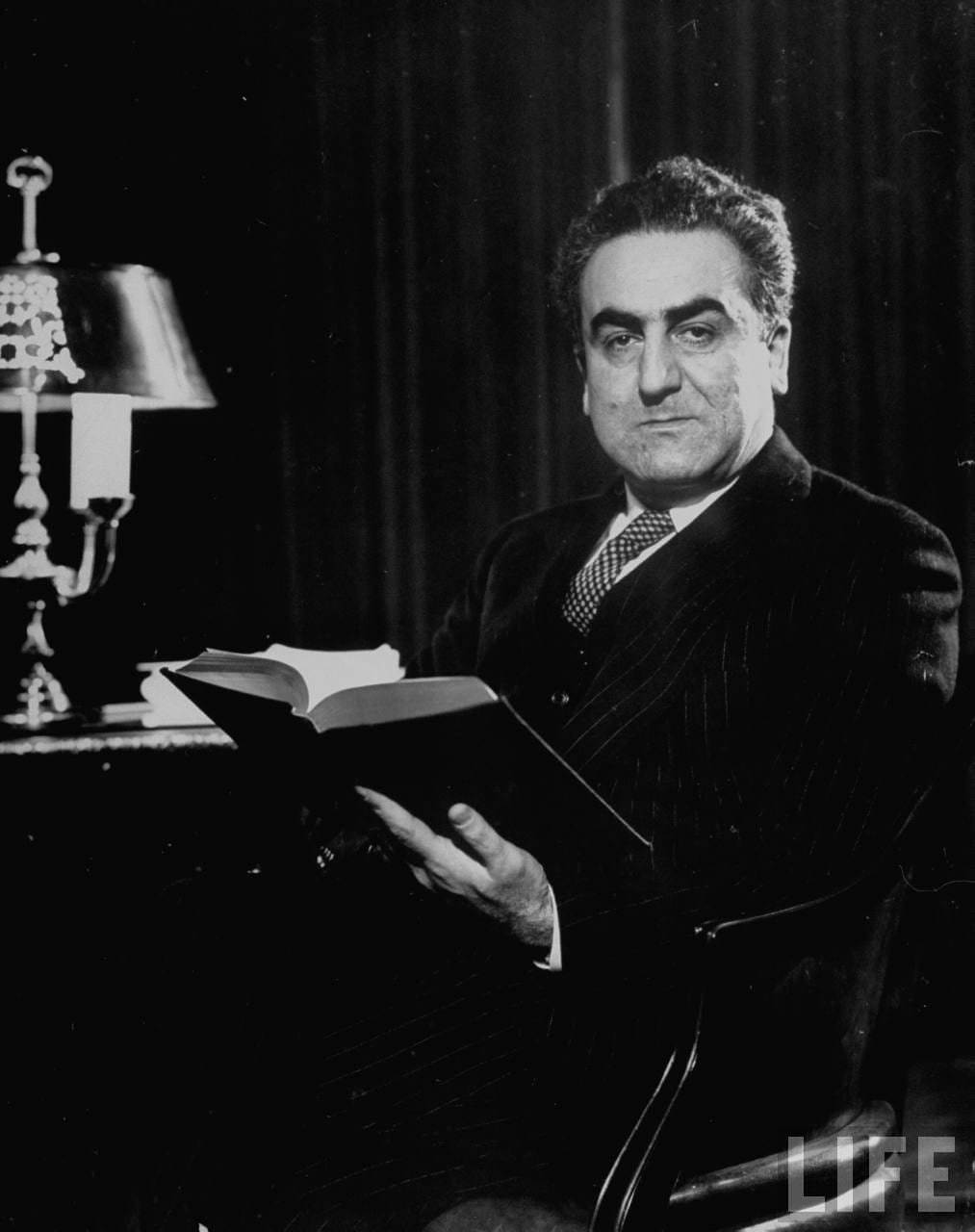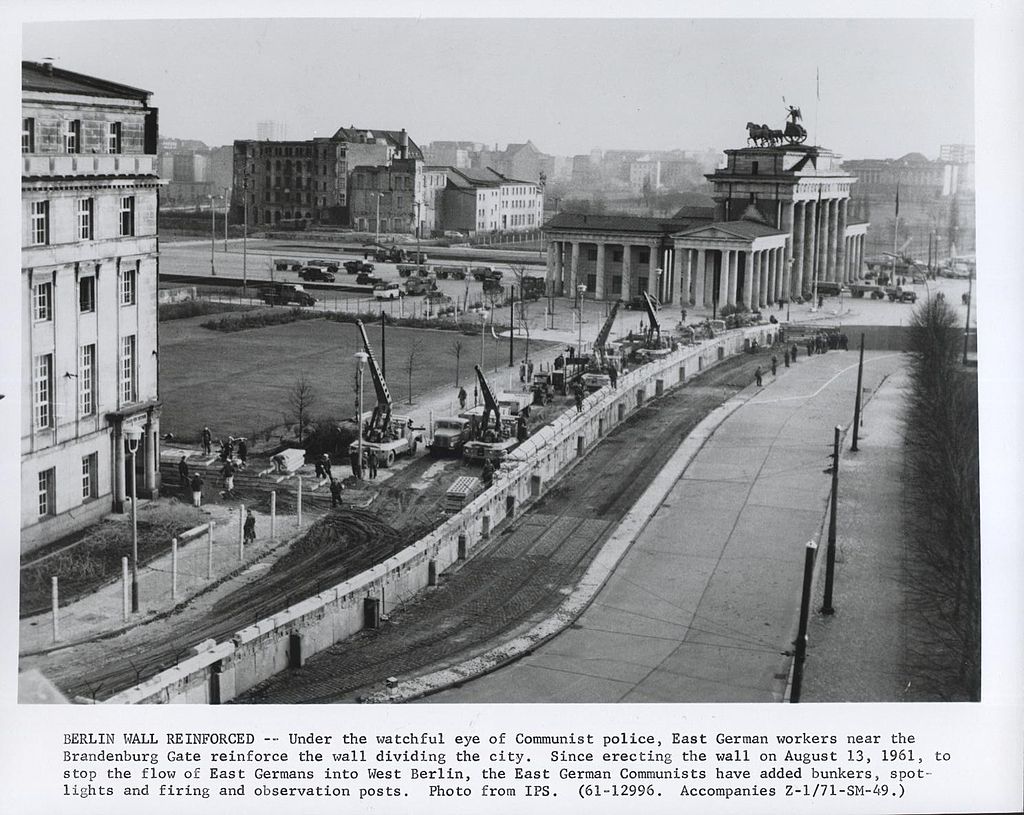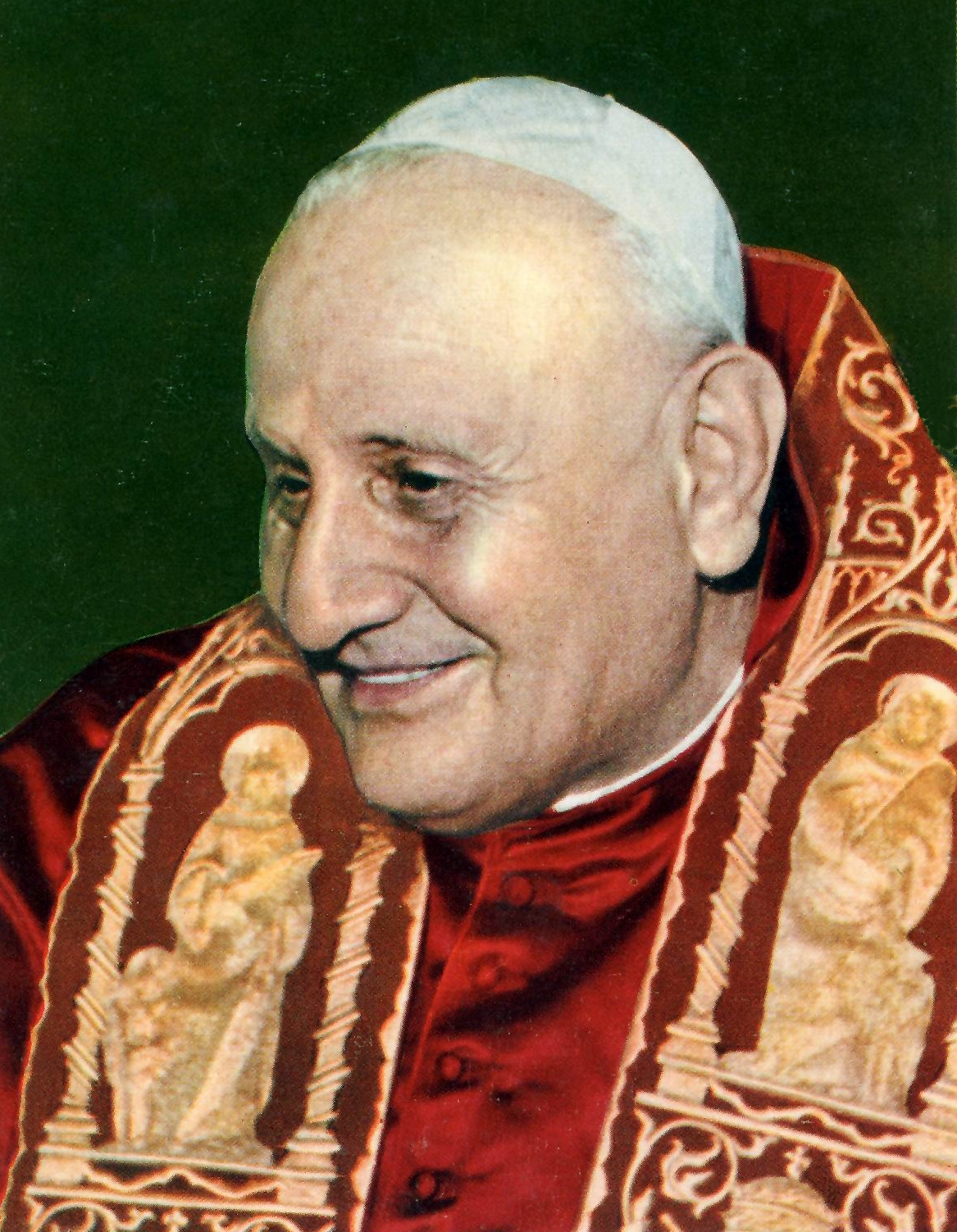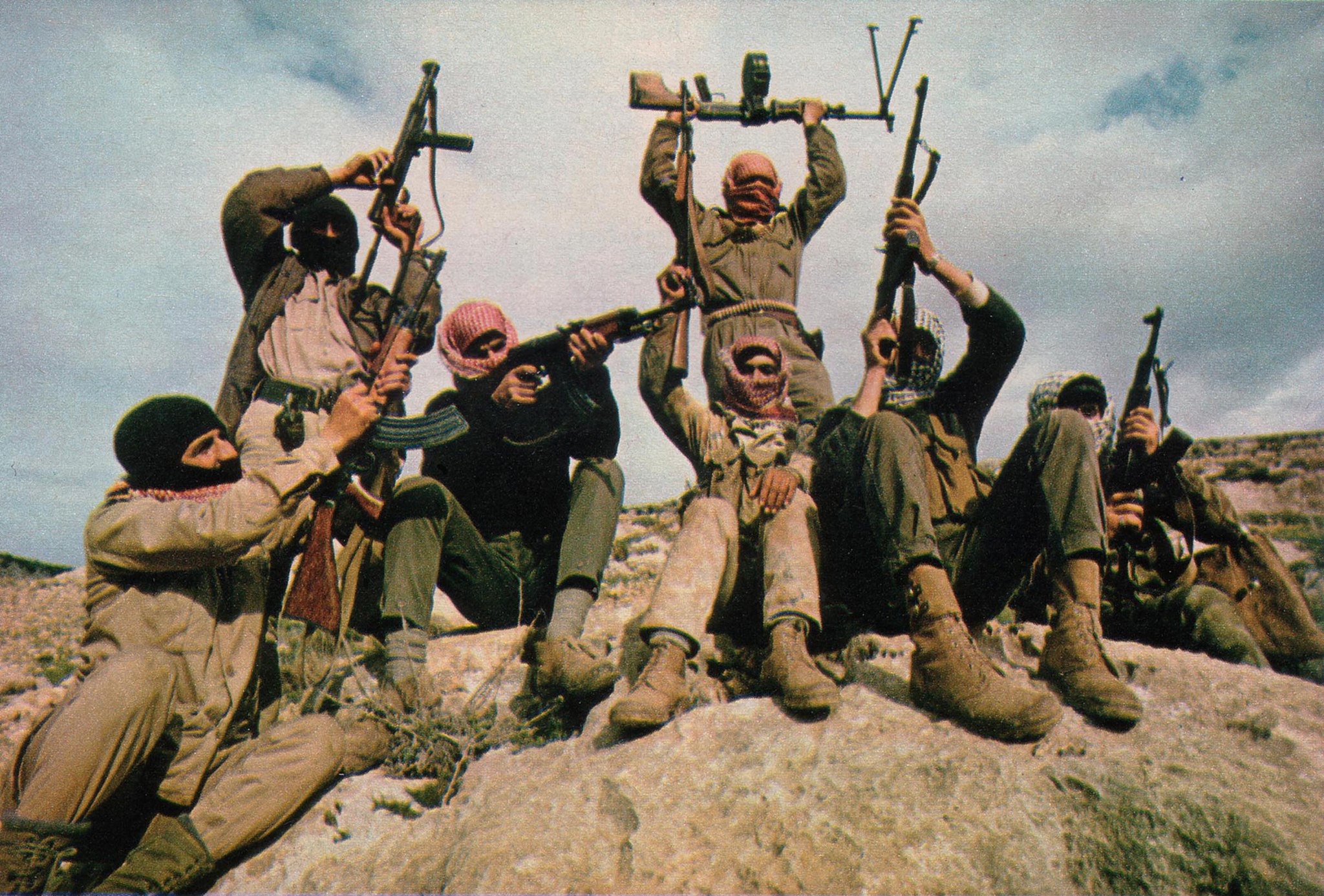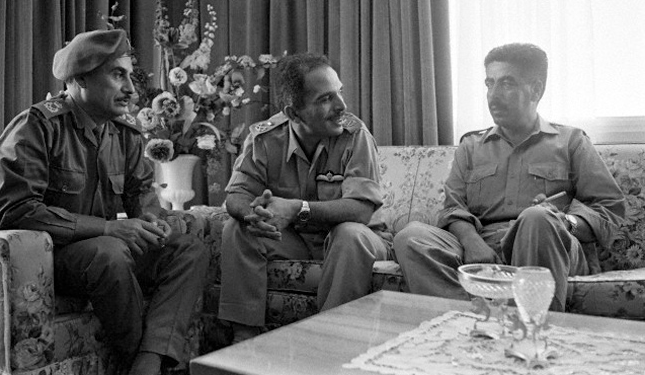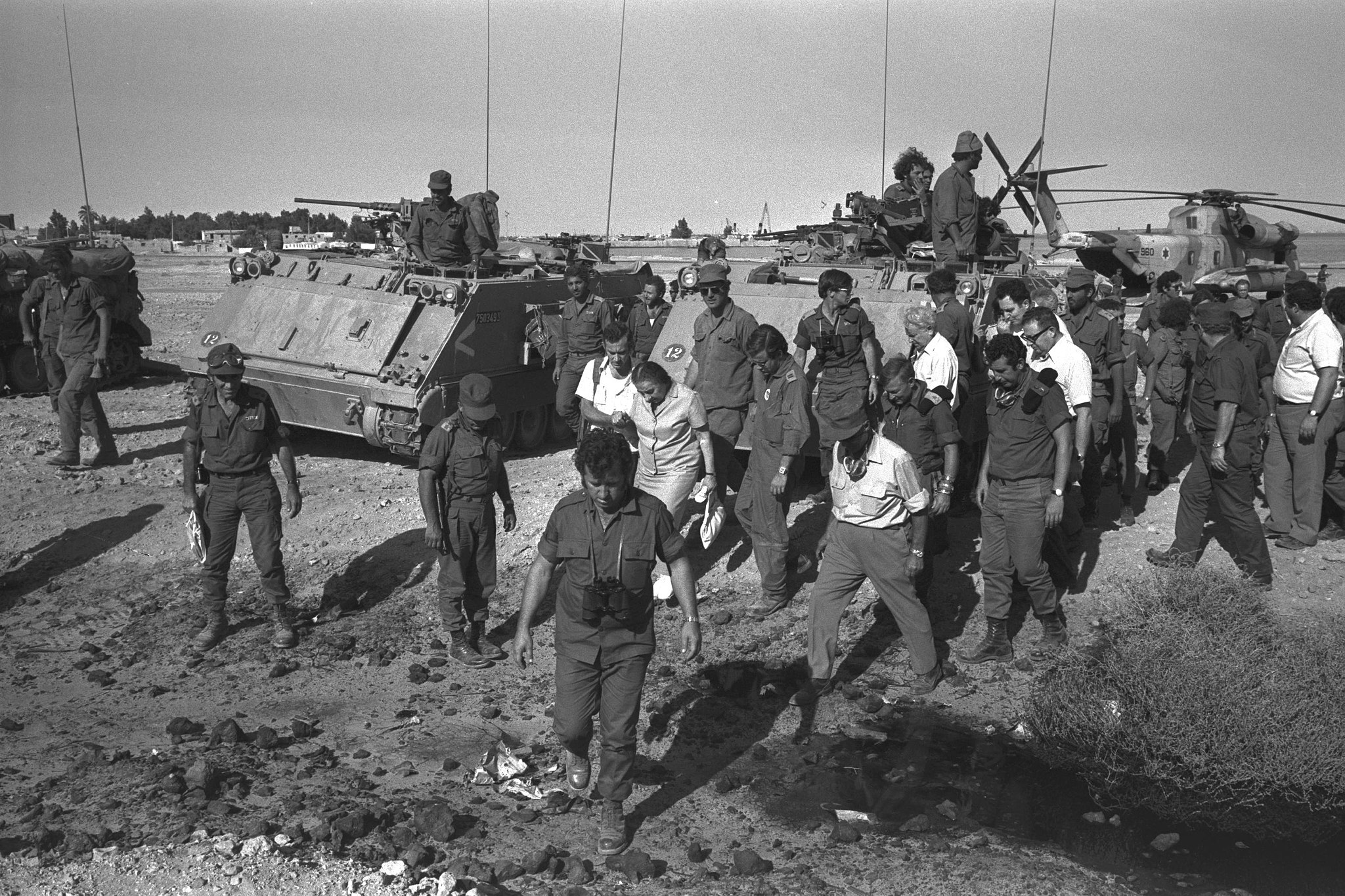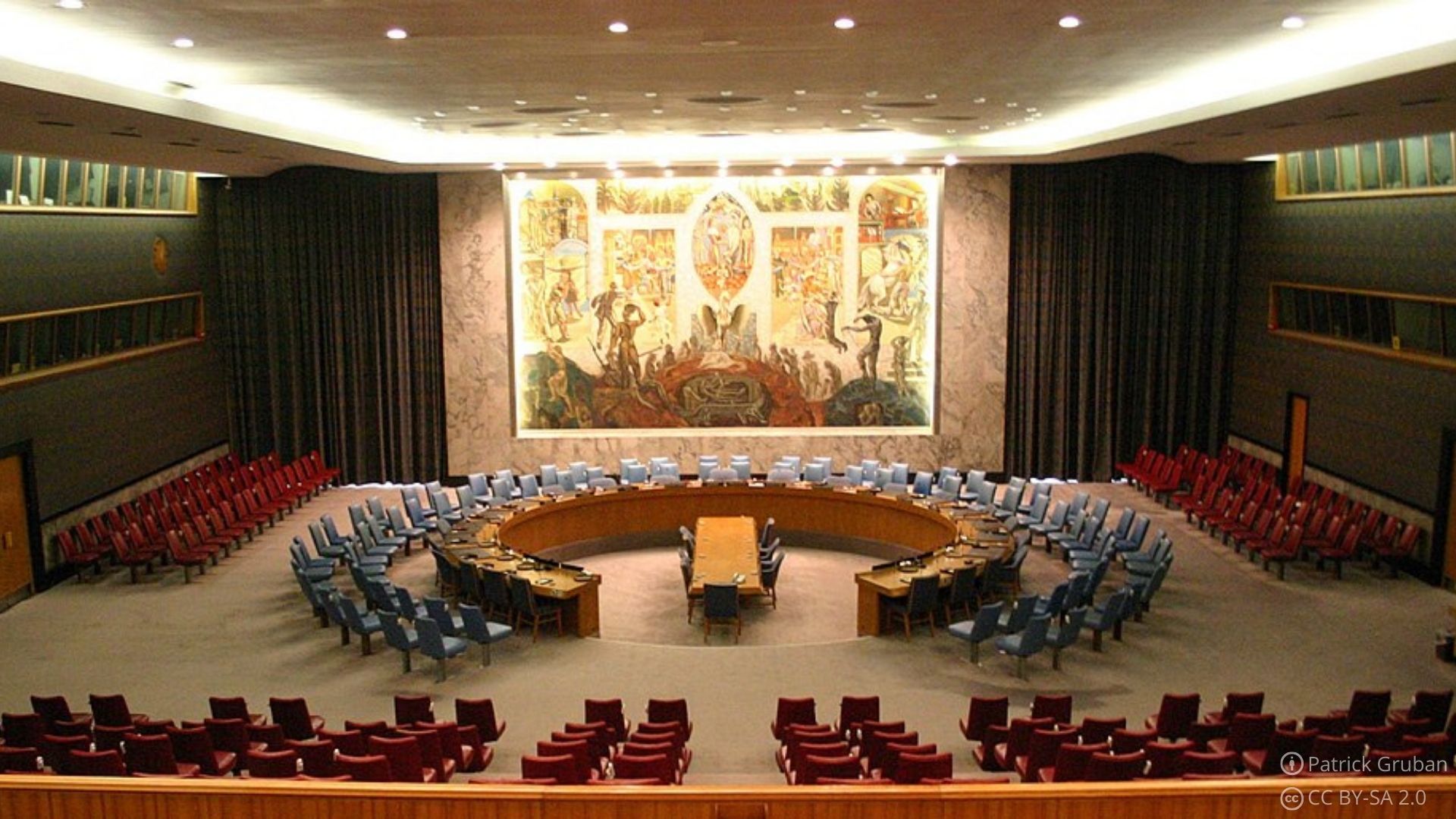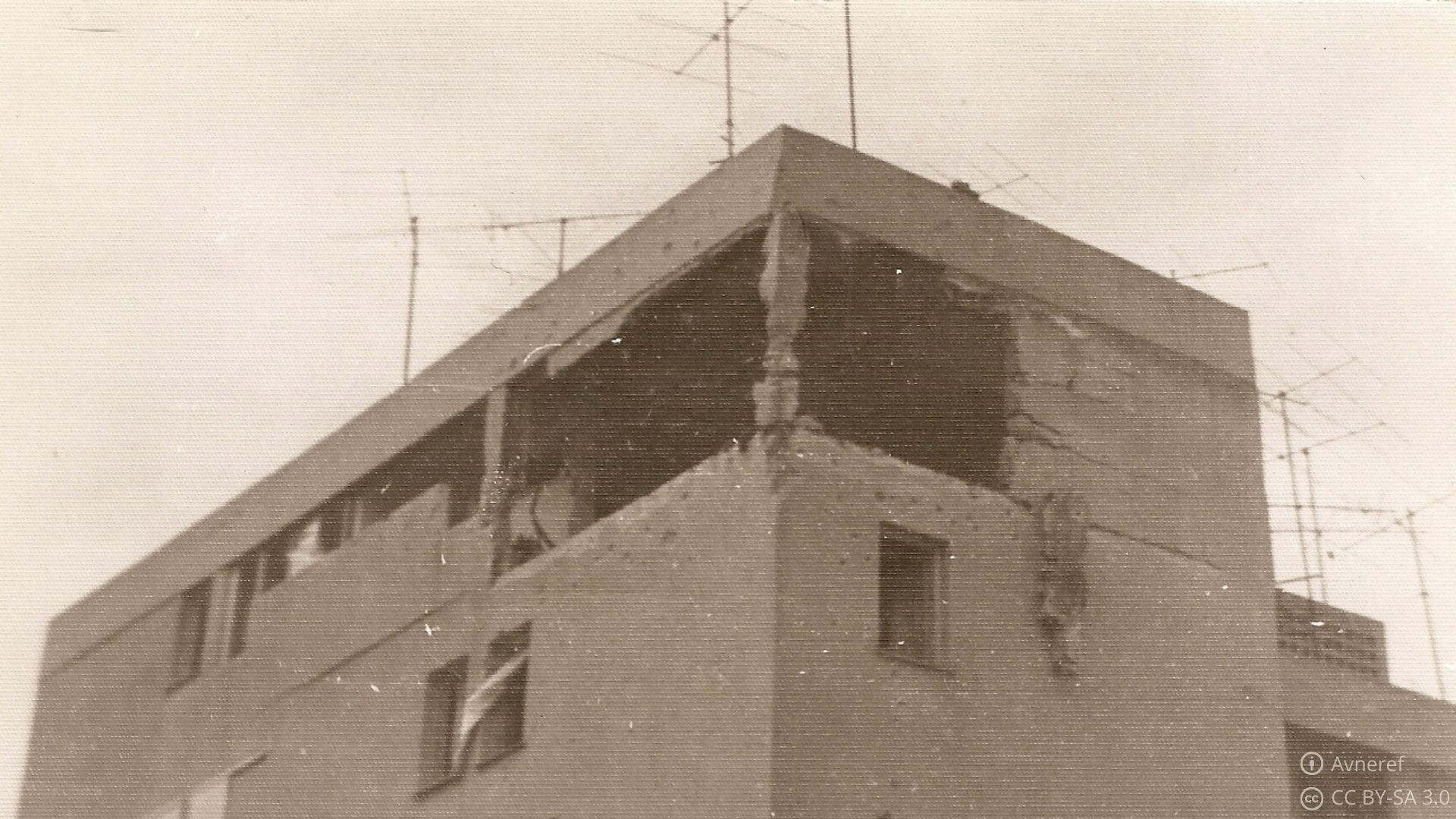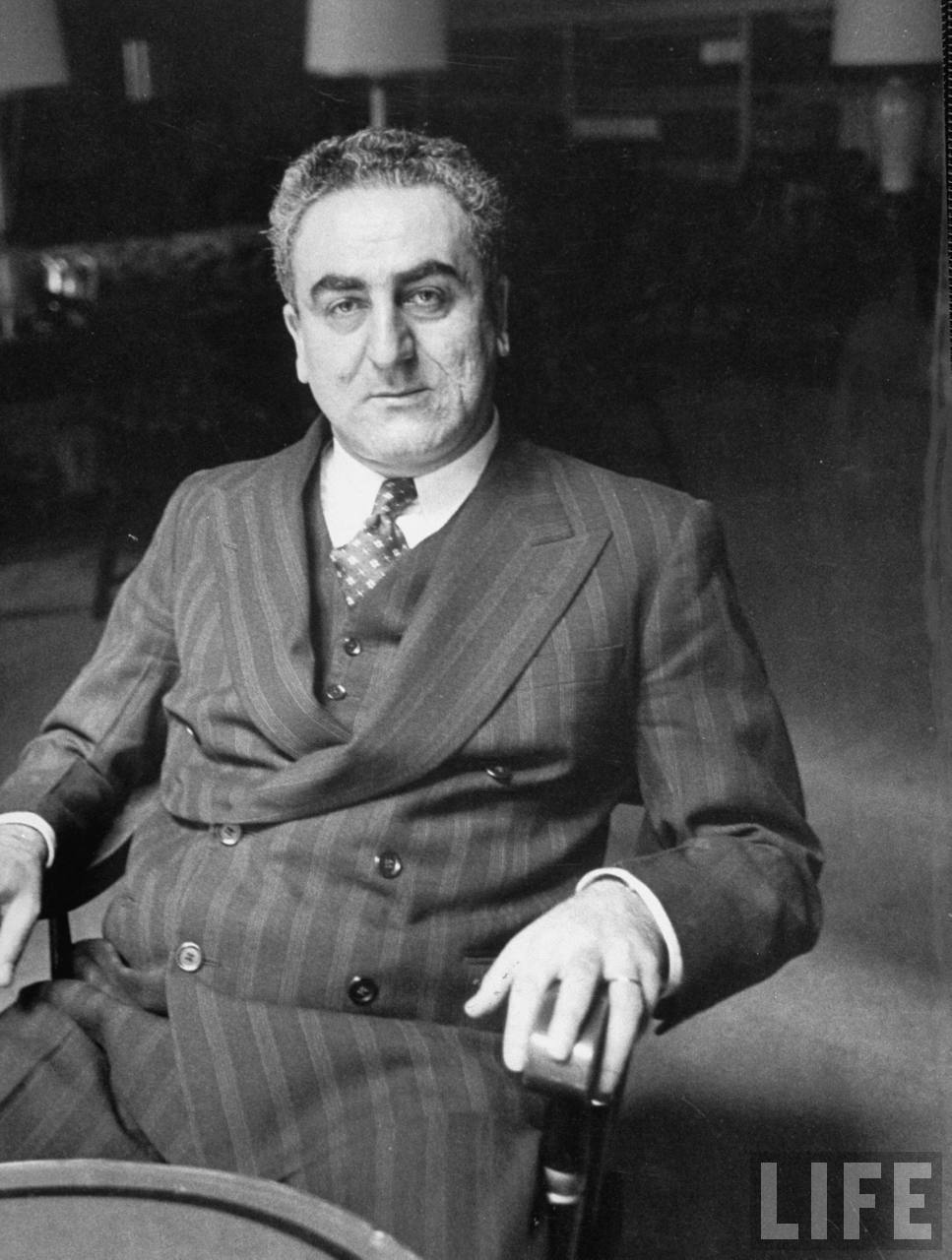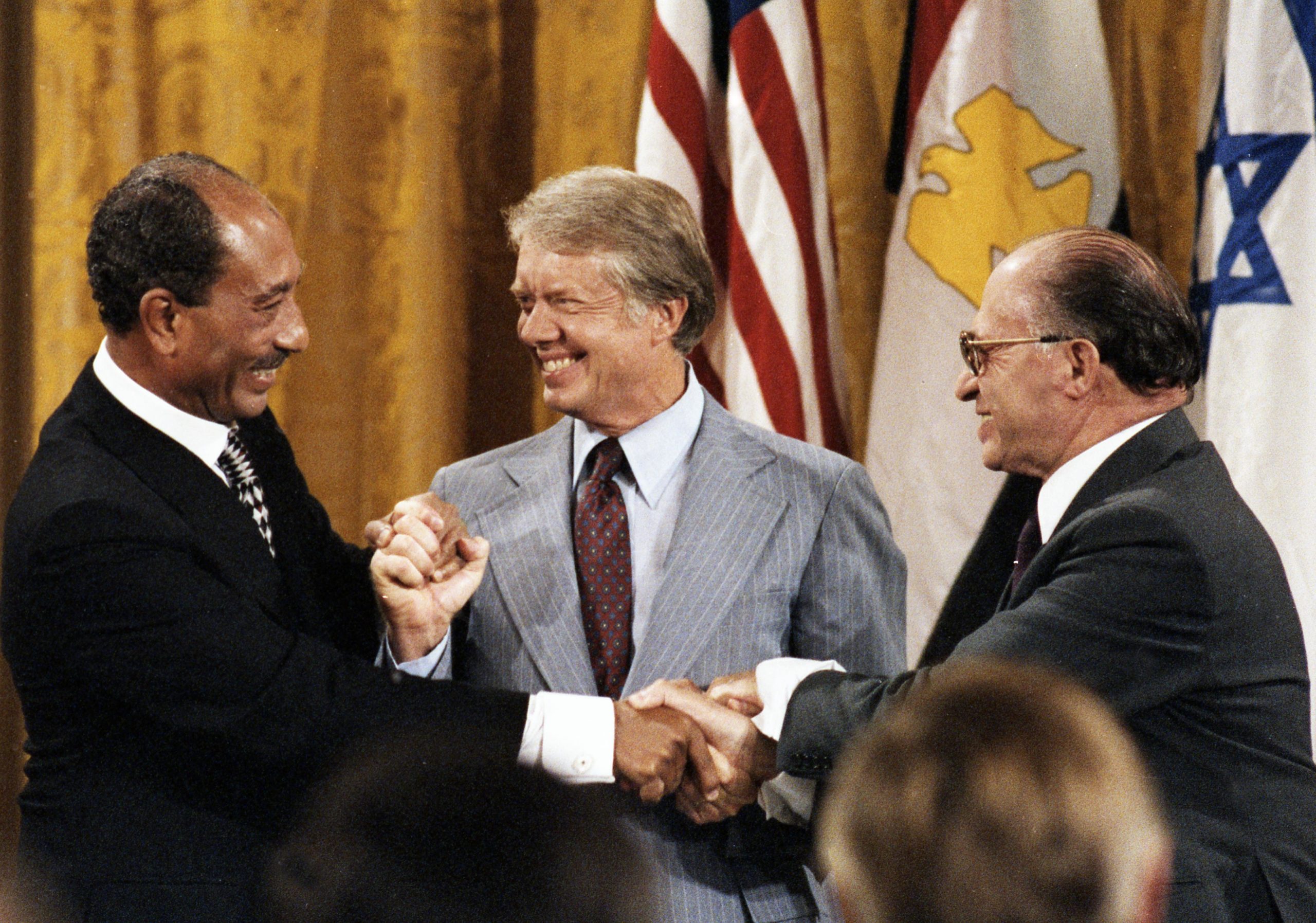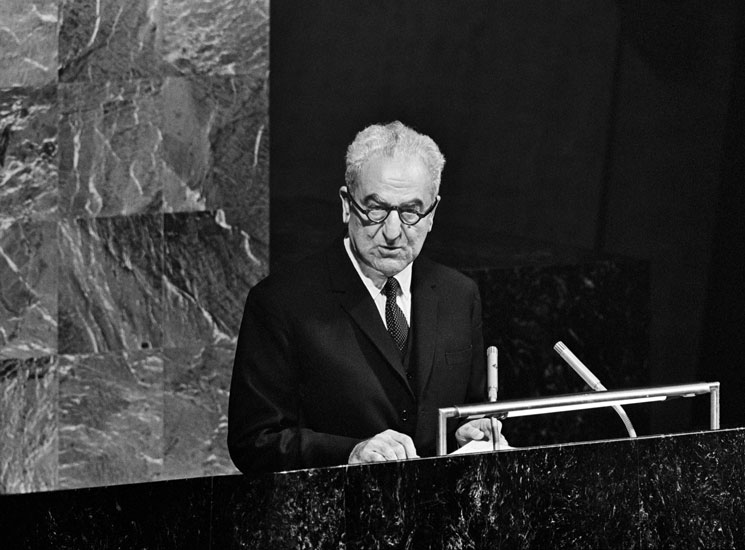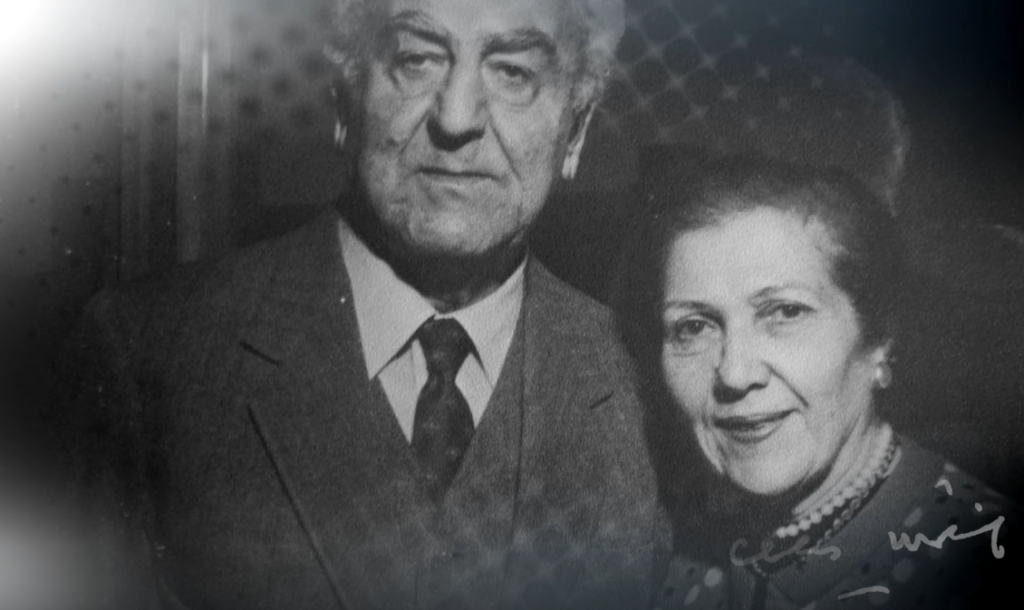About Charles Malik
Charles H. Malik, 1906-1987.
Charles Habib Malik was born on 11 February 1906 in the small town of Btirram in north Lebanon’s predominantly Greek Orthodox district of Koura. His father was a medical doctor, and Charles was the second of six children, two girls and four boys. He was initiated into the Christian faith and the life of the church mainly though his grandmother, and the village priest, a family relative…
Charles received his secondary education at the Tripoli Boys School, founded in the nineteenth century by American Protestant missionaries. He excelled in all his studies, particularly in mathematics and the natural sciences. He completed his undergraduate degree in mathematics and physics in 1927 at the American University of Beirut (AUB). Having excelled in his major, he was recruited to teach mathematics and physics for two years at AUB. The ease with which the young Charles mastered the sciences left him with ample time to pursue readings and studies in other areas of interest such as literature, philosophy and theology.
In 1929, Charles relocated to Cairo, Egypt, to rejoin his family where his father had set up a medical practice. In total, he spent four years in Egypt where he worked in a local publishing house and on a project studying subtropical diseases directed by the Rockefeller Foundation. Having decided to pursue the study of philosophy, Charles wrote directly to a number of leading world philosophers such as Bertrand Russell and Alfred North Whitehead, who shared with him a solid background in mathematics, inquiring about possibilities of studying philosophy under them. As a result, Charles found himself in 1932 in Harvard University studying philosophy under Whitehead and benefitting from a scholarship that he had been granted.
Malik won the Philosophy Department’s highest award that would allow him to go anywhere in the world for two years and study with the philosopher of his choice. Charles decided to go to Freiburg in Germany to attend the seminars of Martin Heidegger. However, after fourteen months there, the stifling political atmosphere dominated by the Nazis in power led him to cut short his two-year stay and return to Cambridge Massachusetts where he completed his doctoral dissertation in 1937 on the metaphysics of time in the philosophies of Whitehead and Heidegger. Charles then returned to his native country Lebanon where he taught philosophy at AUB, and founded both the Department of Philosophy and the Civilization Studies Program there. Between 1938 and 1945, during the entire period of the Second World War, the budding professor and philosopher organized several philosophical and theological reading and discussion circles in and around the university that left a pronounced mark on a diverse number of students and participants. In 1941, Malik married Eva Badr, a graduate student in Arabic Studies at AUB.
Towards the end of the War, and following Lebanon’s independence in 1943, Malik, now well-known to Beirut’s youthful intellectual circles, was selected by the new President of the Lebanese republic to represent his country at the founding conference of the United Nations in San Francisco in 1945, and also to serve as Lebanon’s first ambassador to the United States in Washington. D.C. Following some reluctance and intense deliberations with his friends and his wife, Charles accepted to leave the academic life temporarily and to enter the world of international diplomacy. What he thought would be a brief mission to represent his country abroad lasted for a good fifteen years during which time he was largely kept away from pursuing his original passion of teaching and reflecting, a favored vocation he often described as “the life of the mind and the spirit.”
Throughout his years at the U.N., Malik occupied a number of often overlapping high positions. These included Rapporteur of the U.N. Human Rights Commission in 1947-1948 under Eleanor Roosevelt and later the Commission’s President in 1951, President of the Economic and Social Council in 1948, three times President of the U.N. Security Council in 1953 and 1954, and President of the U.N. General Assembly in 1958-1959.
Perhaps the crowning achievement of Charles Malik’s career at the UN were his historic contributions to the making of the Universal Declaration of Human Rights of 10 December 1948. In addition to the philosophically grounded Preamble that Malik wrote and the Commission adopted, he also wrote the crucial Article 18 of the Declaration on religious freedom and the freedom of conscience. He made substantive contributions to a number of articles including Article 16 on the family. Thanks to Malik’s skillful and tenacious steering of countless meetings in fall 1948 the final version of the UDHR was adopted by the General Assembly on December 10 with no negative votes and only eight abstentions.
Also at the U.N., Malik was a consistent promoter of the rights of the Palestinian people, not from an Arab nationalist perspective, nor from a religiously or emotionally motivated stance, but purely as a matter of justice.
Malik’s was one of the earliest voices at the U.N., during the outset of the Cold War, to warn the West and the world of the dangers of international Communism, and to mount in a series of speeches, dramatic U.N. interventions, and publications a sustained refutation of both Marxism-Leninism and its ideology of dialectical materialism.
Malik served as Lebanon’s ambassador to Washington for ten years from 1945 to 1955, and in 1954, Charles and Eva had their first and only child, a boy they named Habib.
Between 1956 and 1958, Malik held a number of political posts in Lebanon that included election as Member of Parliament representing his district of Koura, and appointment as Foreign Minister and Minister of Education in the Sami Solh government during the tenure of President Camille Chamoun. Chamoun and Malik faced the challenge of Nasserism when Egypt made a failed attempt to incorporate Lebanon into unity with it and Syria. Christian-Muslim tensions were building up in Lebanon, and following a coup in Iraq, Washington invoked the Eisenhower Doctrine and US Marines landed in Beirut in the summer of 1958 to stabilize the situation there.
By 1960, Malik had returned to academia first as a Visiting Professor in Dartmouth College in Hanover, New Hampshire, and then as a visiting professor at the Harvard University Summer School in Cambridge Massachusetts. He also held the post of Visiting Professor at the American University in Washington D.C. in 1961-1962, and in 1969, he was a Visiting Fellow at the Institute for Advanced Studies in the University of Notre Dame in South Bend, Indiana. Malik spent the remaining part of the 1960s and early 1970s as Distinguished Professor of Philosophy and Dean of Graduate Studies at AUB, his old alma mater. During this period, he gave countless speeches and commencement addresses at many North American universities, churches, and leading corporations. Malik throughout his lifetime received close to fifty honorary doctoral degrees from a variety of North American and West European Universities that included Harvard, Princeton, Yale, and Columbia universities.
Other posts Malik held during this period included president of the World Council on Christian Education (1967-1971), and vice president of the United Bible Societies (1966-1972).
A noteworthy feature of Charles Malik’s Christian life was its ecumenical dimension. Malik remained Greek Orthodox to the bone all his life; he also steeped himself in Catholic philosophical and theological thought with a focus on Saints Augustine and Aquinas along with the Neo-Thomists; and, as he stated it, “I live in and on the Bible for long hours every day [and] the Bible is the source of every good thought and impulse I have,” a fact that endeared him to Protestant circles. Malik wrote about ecumenism before the launching of the rapprochement during the 1960s between the Roman Catholic and Eastern Orthodox Churches following the Second Vatican Council. His personal audiences with Saints Pope John XXIII and Pope Paul VI, and his intimate relations with Ecumenical Patriarch of the Eastern Orthodox Church, Athenagoras I, facilitated the three historic encounters during the 1960s between Patriarch Athenagoras and Pope Paul VI, in Jerusalem, Istanbul, and Rome respectively. Charles Malik attended all three encounters in an official capacity by request from Patriarch Athenagoras.
In 1975, when the war in Lebanon broke out, Malik’s reading of it was that it was primarily an assault on freedom and the last remaining free Christian community in the Middle East, that of Lebanon. He was instrumental in 1976 in the creation of a broad coalition of Christian groupings and intellectuals, which he called the Front for Freedom and Man in Lebanon. Later, this same body metamorphosed into the Lebanese Front under the leadership of Former President Camille Chamoun. Malik was pivotal in the promotion of the young Bashir Gemayel to become the President of Lebanon in 1982, only to witness his assassination three weeks into his presidency.
Malik spent some time in Washington D.C. in the early 1980s where he was the Jacques Maritain Distinguished Professor of Moral and Political Philosophy at the Catholic University of America. He also was Pascal Lecturer at Waterloo University in Canada in 1981.
Charles Malik passed away on 28 December 1987 after a two-year illness.
In addition to publishing many books, book chapters, essays, and speeches on an assortment of philosophical, theological, political, and other topics, Charles Malik left a decades-long daily diary, mostly in his handwriting, which remains as an unpublished manuscript. This roughly 34,000-page document contains valuable firsthand testimonies and insights into the man himself; into many of the people with whom he interacted, including world leaders, along with personal, intellectual, and spiritual encounters with friends and associates; into Lebanon and matters Lebanese; into Lebanese-American relations; into the genesis and early years of the U.N; and much else. Hundreds of boxes containing Malik’s personal papers and archives, including many unpublished writings, exist in two large collections, one at the Library of Congress in Washington D.C., and the other in Notre Dame University-Louaize, Lebanon.
The man himself, Charles Malik, remains relevant for, and attractive to, young and old alike—students, scholars and intellectuals, committed Christians, political activists, Human Rights advocates, and many others.
Timeline Legend
– Color denotes key life events for Charles Malik.
– Color denotes key world events
